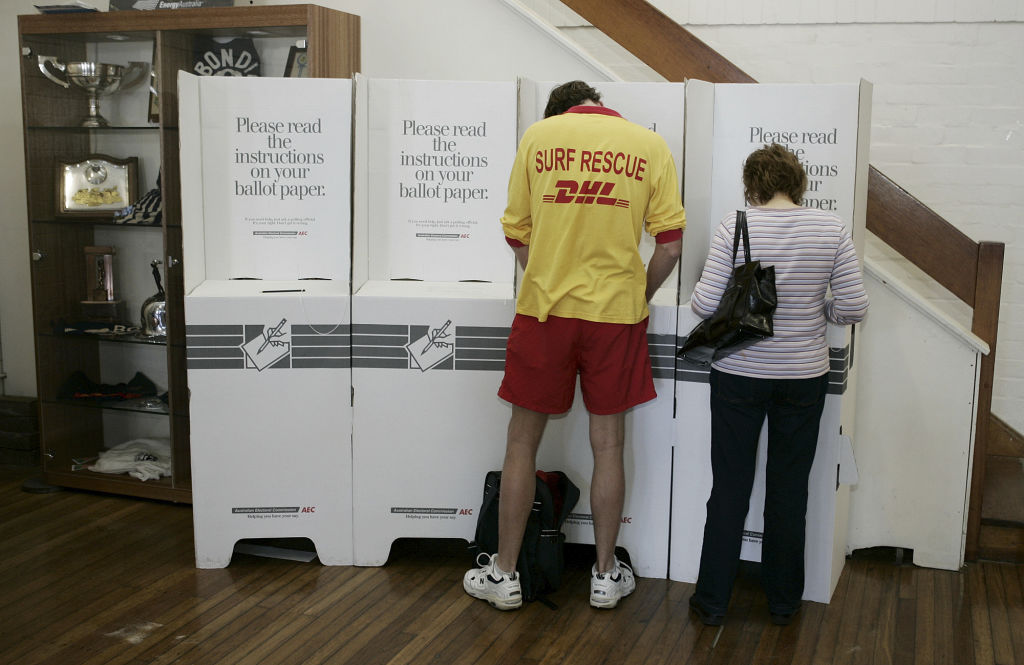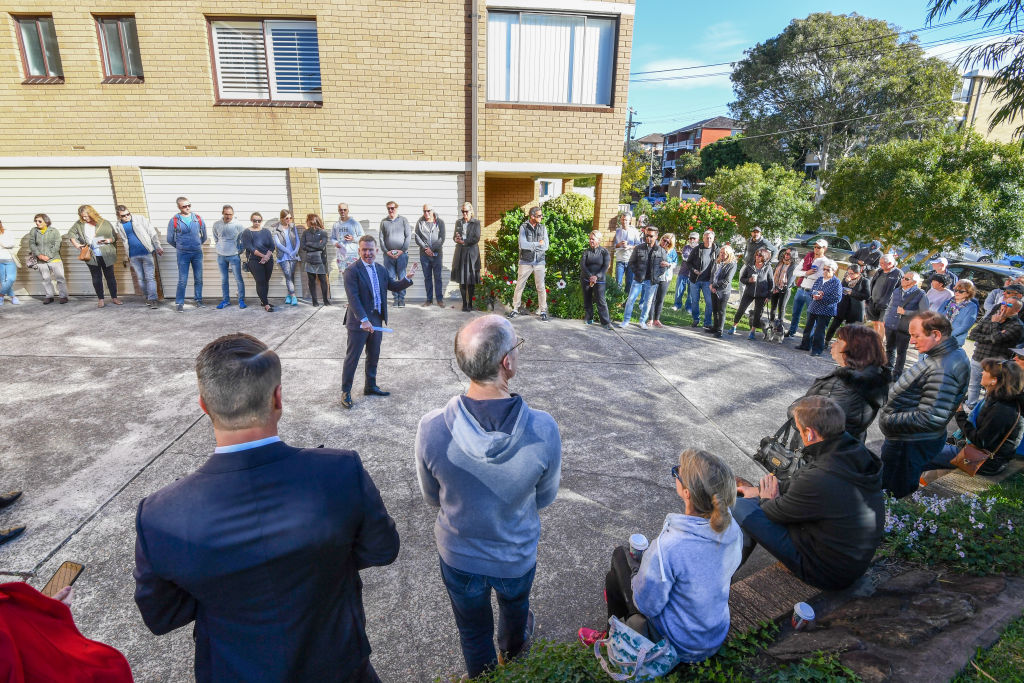What the federal election result means for the property market
A shorter, shallower property price downturn could be on the cards on the back of the Coalition’s victory at the polls, experts say.
But the long-term prospects for first-home buyers are less certain, with changes to investor tax concessions off the table for the foreseeable future.
Following months of uncertainty about the impact of those tax changes, which had led to greater wariness in the cooling market, experts are becoming slightly more bullish, revising their views on property prices, market activity and first-home buyers.
Property prices
“It’s pretty clear to us that the bottom [of the market] is just around the corner,” Commonwealth Bank senior economist Gareth Aird said. “We had a 15 per cent [peak-to-trough price forecast] and we’re almost there now.”
With reforms to negative gearing and the capital gains tax off the table, a likely interest rate cut on the horizon and a scheme to encourage first-home buyer activity, Mr Aird said, it was reasonable to think prices would not fall much further.
He expected prices to bottom out late this year, but noted it would not be a sharp recovery due to tighter lending standards.
“[It’s likely] the market will bottom out earlier under a Coalition government then Labor, but with [potential] rate cuts on top, you’ll never be able to tell,” he added.

AMP Capital chief economist Shane Oliver and Domain economist Trent Wiltshire both also expected the Coalition’s victory, combined with expected rate cuts, would see the downturn bottom out earlier.
Dr Oliver, who has been predicting a peak-to-trough decline of 25 per cent for Sydney and Melbourne, said price declines were likely to be closer to 20 per cent now.
“Some of threats to property are starting to abate,” Dr Oliver said. “Affordability has improved … and the uncertainty about negative gearing and the capital gains tax has been removed. Tightening of credit conditions won’t get much worse, and at the same time we haven’t seen the panic-selling.
“The fact support is on the way for first-home buyers … along with RBA interest rate cuts, means the market could end up bottoming sooner.”
With a Labor government quite widely anticipated, Mr Wiltshire said, changes to negative gearing — and the potential price falls it could bring — had already been partly priced into the market.
“This effect will be unwound, so the peak-to-trough price falls will now be probably smaller than thought prior to the election,” Mr Wiltshire said.
“It’s more likely that prices will bottom out in 2019, [earlier] than if Labor had won,” he added. “But prices still probably have a bit further to fall and the market remains pretty weak.”
Market activity
Regardless of the outcome, Mr Wiltshire said market activity was always likely to pick up post-election as buyers and sellers would have more certainty on housing policy.
“If Labor [had] won, we might have seen a bigger spike in market activity in 2019 as investors would have tried to buy before the negative gearing change, but then there might have been a weaker 2020,” he said.
He is now expecting a more gradual pick-up in prices, with both first-home buyers and investors to drive market activity on the back of the Coalition’s policies.
“Sellers will then respond to buyer interest, there might be a few people who were thinking about selling who have held off [until now],” Mr Wiltshire added.

Ray White chairman Brian White said buyers and sellers would be relieved to know where they stood now the election was over.
“[In the lead-up] people were saying ‘let’s sit on our hands and just wait and see what’s happens’,” Mr White said. “That waiting is finished and I think there’s a big chance that confidence will get a nice boost, as we’ve seen already in the stock markets.”
While he is not expecting to see a rush to market, he believes there will be a boost from buyers and sellers who had been waiting on the sidelines.
“I’m confident the market will now improve, because of the stronger [market] curiosity exhibited by the community, which has been reflected by increased auction attendances,” Mr White said.
“People are all wanting to know what’s coming … I believe we’ll look back and sees this period as the bottom of the market.”
McGrath chief executive Geoff Lucas agreed the government’s win would inject confidence and clarity back into the market.
“Conversely, if Labor [had] won and the negative gearing and capital gains tax reforms had passed, it is possible that the current downturn would have been exacerbated,” Mr Lucas said. “At the least, it would have created confusion, concern and uncertainty. “

First-home buyers
Labor’s proposed changes to negative gearing and the capital gains tax discount would have removed concessions for investors, creating a more level playing field for first-home buyers.
The changes aimed at improving housing affordability will not go ahead under the Morrison government. Instead, first-home buyers will have access to a loan scheme — also backed by Labor — enabling them to purchase property with a 5 per cent deposit.
Dr Oliver expects the policy will bring forward some first-home buyer activity, but that its impact will be limited as it is capped at 10,000 loans a year and requires a higher debt-to-income ratio.
He expects the government will morph the scheme into a grant, which could provide more of a stimulus to the lower end of the market.
While he would not advocate for grants in a booming market as they could further drive up prices, Dr Oliver said it could help in a cooling market when there was concern about the wider impact a downturn could have on the economy.
Mr Wiltshire expected the scheme would have a small but not-insignificant impact and encourage some first-home buyers to get into the market earlier.
However, he noted a Coalition government also meant first-home buyers would not benefit from improved affordability off the back of cuts to negative gearing and the capital gains tax discount.
We recommend
We thought you might like
States
Capital Cities
Capital Cities - Rentals
Popular Areas
Allhomes
More







